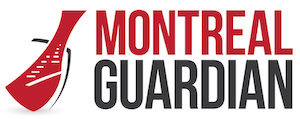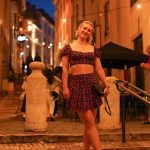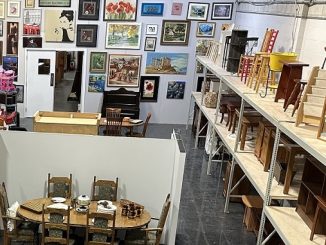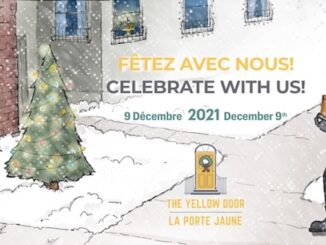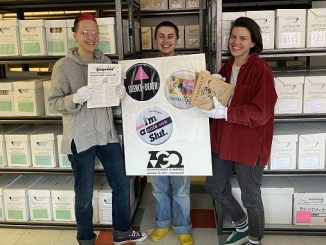Founded in 2017 by Pilar Hernandez and Rafael Benitez, PAAL Partageons le monde is a Montreal-based cultural organization dedicated to using art as a tool for dialogue, inclusion, and social transformation. As Executive Director, Pilar leads the organization in creating safe spaces where marginalized communities, particularly racialized, Indigenous, and immigrant groups, can see themselves represented and participate in the cultural life of Quebec.
PAAL’s impactful projects, such as Festival Día de Muertos MTL and Histoires NDG, help foster empathy, reduce social fragmentation, and build a more just society. By focusing on intercultural dialogue and artistic expression, PAAL is reshaping cultural programming to reflect the diverse experiences of all Montrealers. Through these efforts, the organization has earned recognition for its work in heritage and community history, winning awards like the General Governor History Award.
PAAL is not only reshaping cultural spaces but also advocating for structural changes to support marginalized artists and communities. Whether through attending events, volunteering, or making a donation, everyone can be part of this transformative journey.
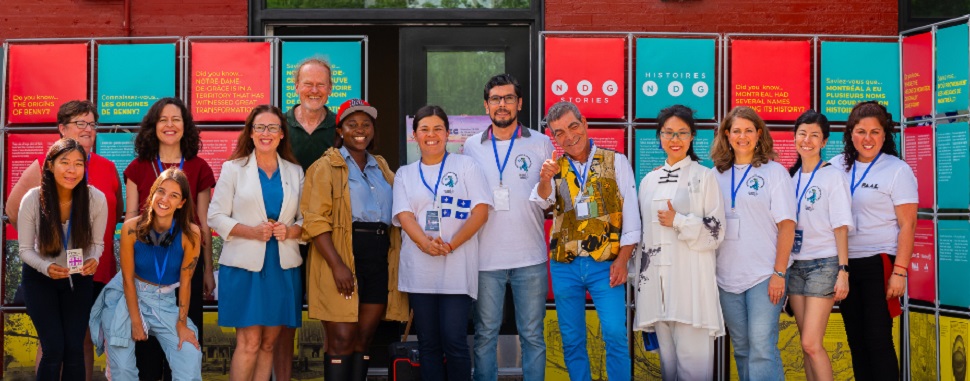
Describe your charity/non-profit/volunteer work in a few sentences.
PAAL is a cultural organization that creates safe and creative spaces where art becomes a tool for dialogue, inclusion, and collective transformation. Artists, community members and other professionals co-create projects that celebrate cultural diversity, promote social cohesion, and help build a more just and caring society. We are recognized for our expertise in intercultural mediation and our actions at the crossroads of community, art, and social justice.
What problem does it aim to solve?
In a society marked by identity tensions, systemic exclusion, and social fragmentation, PAAL Partageons le monde addresses the persistent lack of visibility, representation, and meaningful participation of marginalized communities, particularly racialized, Indigenous, and immigrant groups, in cultural life. Our work responds to the need for spaces where all people can feel seen, valued, and connected. Through artistic expression and intercultural dialogue, we foster empathy, build bridges between communities, and promote equal dignity. At the same time, we encourage a deeper understanding and appreciation of Quebec dominant society’s history and culture, helping to reduce fear, invisibility, and division, and ultimately contributing to a more inclusive and resilient society.
When did you start/join it?
We founded PAAL in 2017.
What made you want to get involved?
As an immigrant and cultural worker, I witnessed how people who were not part of the majority, whether Indigenous or immigrants, were excluded from cultural spaces and their programs. There was only one dominant narrative. I wanted to create opportunities for people from all backgrounds to feel seen, celebrated, and connected through art, and to be an integral part of the cultural offer in Québec and Canada.
What was the situation like when you started?
There were very few spaces in Montréal’s west end where diverse communities could actively participate in the cultural life of the city. Cultural programming often overlooked the lived experiences and expressions of immigrants or racialized communities.
How has it changed since?
Today, our projects like Festival Dia de Muertos MTL, Broder ses racines, and Histoires NDG are helping redefine who gets to participate in culture. We’ve engaged thousands of people in meaningful, inclusive artistic experiences. We’re also proud recipients of awards recognizing our work in heritage and community history as the General Governor History Award that we received last year. Within the arts and community sector, I see more openness to collaboration and intersectional approaches.
As society, we’ve made significant strides in recognizing diversity and promoting DEI (Diversity, Equity, and Inclusion), especially following the public outcry after the deaths of George Floyd and Joyce Echaquan. These moments helped society better understand the everyday experiences of racialized people. There’s also more recognition of Indigenous peoples’ contributions and rights. On the other hand, we see a growing wave of conservative backlash, similar to what’s happening in the U.S. This is Canada’s opportunity to clearly differentiate itself—we don’t want to be the 51st state.
What more needs to be done?
We need sustained support to ensure equitable access to cultural creation, especially in underserved areas. Cultural institutions must continue to decolonize and open up to different narratives. And beyond representation, we need structural change: support systems for marginalized artists, inclusive governance, and long-term investment in community-based cultural work that trust our work and process.
How can our readers help?
You can help by attending our events, sharing our work, volunteering, or making a donation. Most importantly, invite someone new into a cultural experience — connection starts with a simple gesture.
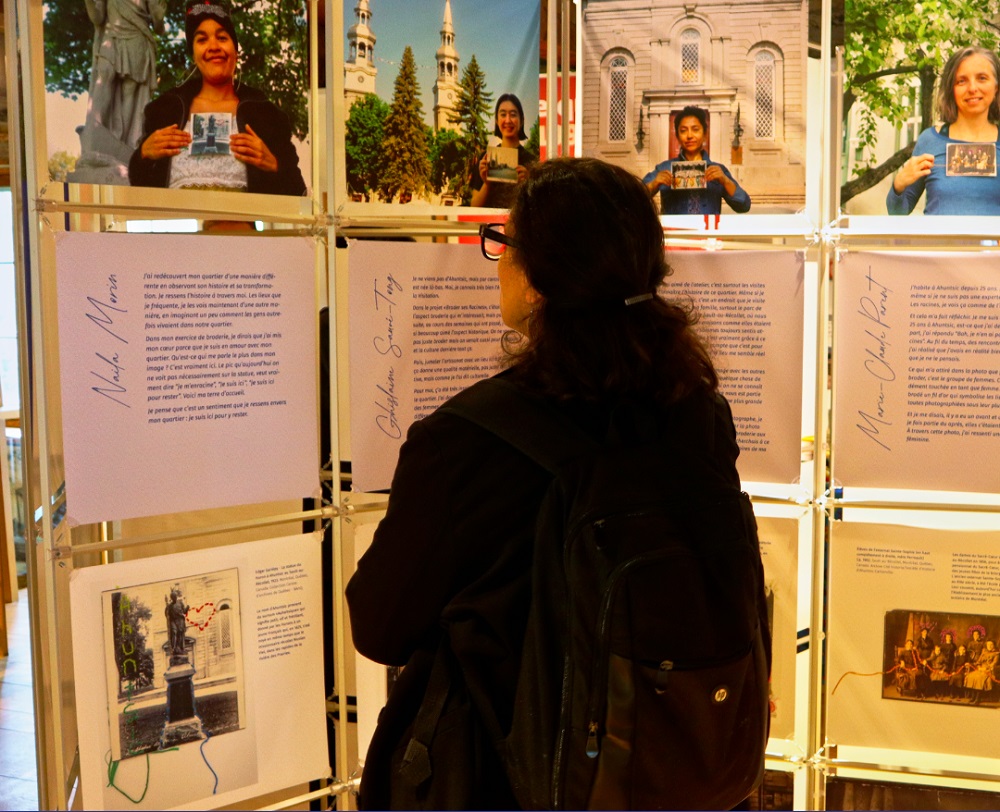
Do you have any events coming up?
In addition to our flagship event, the Festival Día de Muertos MTL, which brings Montrealers closer to the meaning of life and death through Mexican and global ancestral traditions, we have a full season of activities designed to promote cultural dialogue, co-creation, and community well-being.
Here are some highlights:
- Histoires NDG – exposition et médiation culturelle
We’re presenting the second edition of our NDG heritage project, including a new exhibition, storytelling workshops, and a walking map that brings hidden histories to light at Benny Library from May to June 20. It’s a vibrant way to reconnect with the neighbourhood’s layered identities.
- Poi(s)son d’avril – écoconception citoyenne
This is a participatory art project that invites families to reflect on aquatic life and plastic pollution. It will culminate in a collective installation made from recycled materials in Lachine Library. This artistic gesture aims to raise ecological awareness in a playful and community-driven way.
- Broder ses racines – art textile et transmission
Nominated for the Governor General’s History Awards, this project brings together generations and cultures around embroidery. Participants stitch their personal stories and ancestral heritage, creating powerful textile artworks that speak of memory, resilience, and belonging. The exhibition will open on July 12 at the Intercultural Library in Côte-des-Neiges
Where can we follow you?
Website | Festival Dia de Muertos | Instagram | Facebook
PAY IT FORWARD: What is an awesome local charity that you love?
We love Bâtiment 7, a citizen-led cultural and social hub in Pointe-Saint-Charles. It’s a powerful example of collective ownership, self-management and community-based development.
